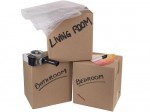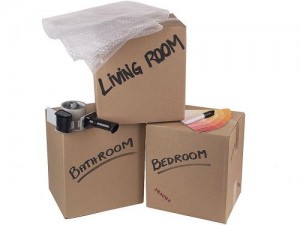You Are Under Contract…What’s Next?

Rarely does a buyer get a place that is truly in “move-in” condition. By the time you’ve signed a contract, you have lots of ideas about how you’ll live in this home, how you’ll customize it to suit you and your family, and what work needs to be done.





 Moving into a new house is exciting, but the list of “to dos” can be overwhelming. You not only have to pack and prep the new house, but you have to tie up all the loose ends at the old place. Here are 10 tasks that are easily overlooked when moving into a new home – if you take care of these, you’ll have a leg up on moving day.
Moving into a new house is exciting, but the list of “to dos” can be overwhelming. You not only have to pack and prep the new house, but you have to tie up all the loose ends at the old place. Here are 10 tasks that are easily overlooked when moving into a new home – if you take care of these, you’ll have a leg up on moving day. Kim N. Bregman
Kim N. Bregman